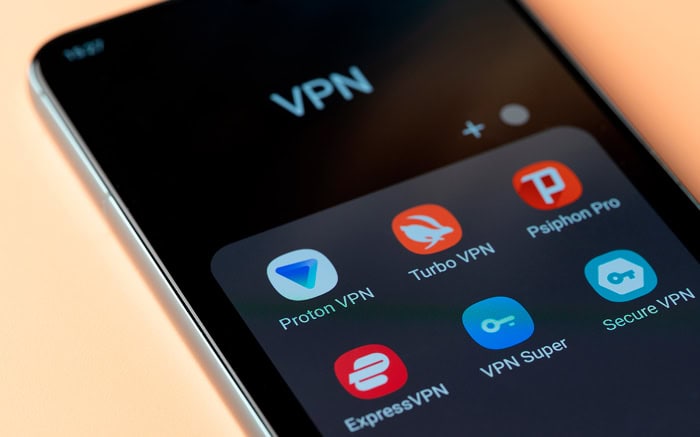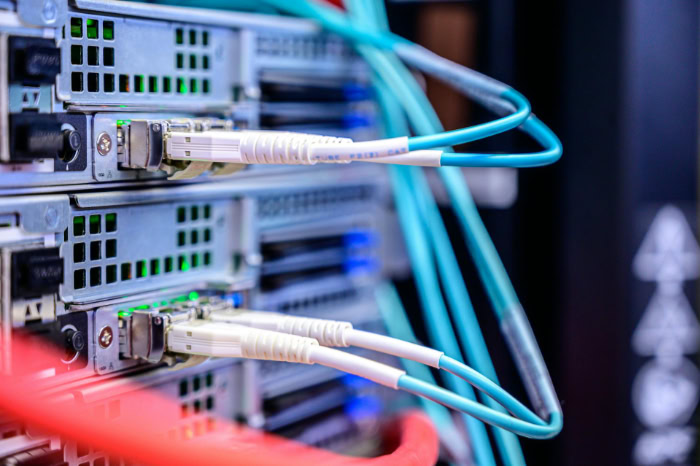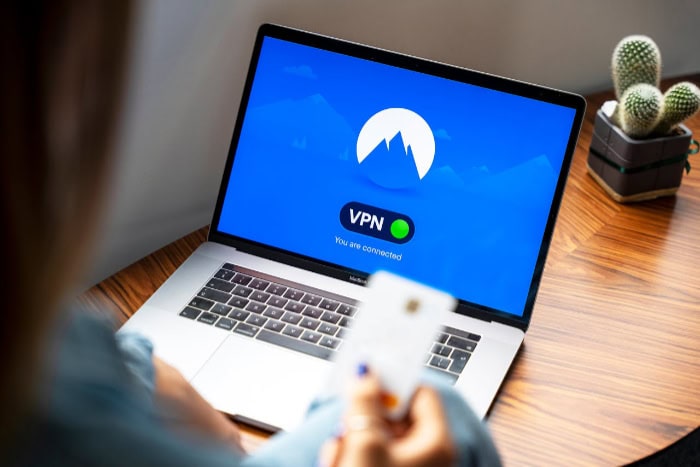Proxy vs. VPN: Your Questions Answered

Trying to decide between using a proxy or a VPN often comes down to what you value more: speed or security. Each option promises to hide your IP address, but the way they handle your data and protect your privacy is quite different.
For students, professionals, and casual browsers alike, figuring out which tool fits your needs can make a real difference in your online experience. Let’s take a closer look at how proxies and VPNs actually work, spotlight where they excel, and help you choose the best option for everything from streaming shows to safeguarding personal information.
Core Functionality Differences
Choosing between a proxy and a VPN starts with recognizing how each tool handles your internet traffic. While both offer ways to mask your online identity and access restricted content, their core operations and impact on your online experience can be quite different.
Traffic Routing Scope
Proxies and VPNs differ significantly in how much of your online activity they affect. Proxies work on an application level, rerouting traffic only for the specific program or browser you configure to use them.
For example, setting up a proxy in your browser will only affect websites and services accessed through that browser, leaving other applications untouched and unprotected.
VPNs, on the other hand, act on the operating system level. Once a VPN is activated, all internet traffic from your device, regardless of which app or browser you use, travels through the secure VPN tunnel.
This approach offers more comprehensive privacy and can be especially useful if you want to secure all your online activity without having to configure individual apps.
Technical Operation
The technical differences between proxies and VPNs shape how they operate and what you can expect from each. A proxy functions as a middleman between your device and the internet.
When you use a proxy, your requests are sent first to the proxy server, which then forwards them to the destination website. Responses from the website return to the proxy, and are then relayed to you.
This setup allows proxies to hide your actual IP address, but it generally does not add any encryption or extra security.
VPNs use a different approach by creating an encrypted tunnel for your internet traffic. When a VPN is active, all data leaving your device is encrypted and sent to the VPN server.
Only then is it decrypted and transmitted to its final destination. This tunnel shields your data from prying eyes such as hackers or internet service providers, making VPNs a stronger choice for privacy and security.
IP Masking Mechanics
Both proxies and VPNs are commonly used to disguise your real IP address, which helps you appear as if you are browsing from a different location. Proxies offer this benefit, but only for the applications configured to use them.
Browsing or app activity outside those specific settings can still reveal your true IP address.
VPNs take things further by masking the IP address for every single connection from your device, not just selected apps. This means that whether you are streaming videos, joining video calls, or simply browsing, your true location and identity stay hidden across the board.
For those seeking a higher level of anonymity, VPNs deliver a much broader shield against tracking and identification.
Security And Privacy Capabilities

Staying safe and private online depends not just on hiding your IP address, but also on how well your internet traffic is protected from snooping, tracking, or even theft. While both proxies and VPNs can help disguise your online location, they take very different approaches to security and privacy, directly affecting how much you can trust them with your information.
Encryption Standards
VPNs are designed with robust security in mind. They encrypt all data moving between your device and the VPN server, usually using AES-256, a gold-standard encryption protocol trusted by governments and cybersecurity experts.
This strong protection means that even if someone intercepts your web traffic, the data remains unreadable. Your browsing, passwords, and personal details stay shielded from hackers, internet service providers, and anyone else who might want to snoop.
Proxies handle data quite differently. Most common types, such as HTTP and SOCKS proxies, do not encrypt your traffic at all.
Information passes between your device and the proxy server in plain text, which leaves it exposed to interception, especially on unsecured networks like public Wi-Fi. While a proxy may hide your IP address, it does little to protect your actual data from being viewed or stolen.
Data Logging Risks
Trust plays a major role in choosing between a proxy and a VPN, especially regarding how your online activity is recorded and stored. Free proxy services are notorious for logging user data, which can then be sold to advertisers or, worse, end up in the hands of cybercriminals.
Since proxies usually lack strong privacy policies and oversight, your browsing habits, search history, and other sensitive information can become commodities traded behind your back without your knowledge.
Reputable VPN providers place a strong emphasis on privacy. Many popular VPNs operate under strict no-log policies, meaning they do not store details about your online activity or connection history.
For those who care about keeping their digital footprint as small as possible, a trusted VPN offers much higher confidence that your data will not be harvested or leaked.
Vulnerability Exposure
Security is also about defending against threats beyond simple data interception. Free and low-budget proxies are frequently targeted by cybercriminals, making them susceptible to malware infections or tricking users into visiting compromised websites.
Because proxies don’t typically have built-in protections against leaks or attacks, they can leave your device vulnerable to a range of threats and may even be used to inject unwanted ads or malicious files.
VPNs, particularly those from established providers, counter such risks with features like automatic kill switches and DNS leak protection. If your VPN connection unexpectedly drops, a kill switch instantly blocks all internet access until the secure tunnel is restored, stopping your real IP and unencrypted traffic from leaking online.
DNS leak protection ensures that all your requests are routed securely through the VPN, further safeguarding your privacy from accidental exposure.
Performance And Usability

How smoothly a proxy or VPN fits into daily browsing can make a big difference in overall satisfaction. Beyond privacy and security, considerations like internet speed, ease of setup, and connection reliability play a crucial role in choosing the right tool for your needs.
Knowing what to expect in terms of performance and usability helps ensure that your chosen solution matches your habits and expectations.
Speed Impact
Speed often ranks as a major concern for anyone planning to use a proxy or VPN. Proxies typically win points in this category because they lack the processing overhead of encryption.
With a proxy, your data passes through the server nearly unchanged, allowing for quicker response times and smoother web browsing, especially when streaming, gaming, or accessing content-heavy websites. Many people find proxies a natural fit for simple browsing tasks that demand minimal lag.
VPNs, thanks to their encryption processes, tend to slow internet connections to some extent. Encrypting every packet of data adds time and can reduce speeds, especially when using servers located far away or during peak hours.
Premium VPNs have made significant progress toward closing the gap, but some reduction in speed is usually noticeable. For those who need rock-solid privacy during sensitive activities, though, the trade-off is often more than worth it.
Setup Complexity
Installing and configuring a proxy is usually a more hands-on process. Users are required to manually enter proxy server details into each browser or app they want to route through the proxy.
For someone comfortable tinkering with network settings, this might not pose a problem, but less tech-savvy users could find it confusing or time-consuming. Every new device or application means repeating the setup, which can quickly become tedious.
VPN providers have focused on creating user-friendly experiences. Most offer dedicated apps for computers, phones, tablets, and even smart TVs.
With just a few clicks, all traffic from your device is routed through the VPN server, no matter what application you use. This single setup process greatly simplifies privacy for those who prefer not to deal with manual configurations or want quick protection across multiple devices.
Connection Stability
Stability is another important aspect when comparing proxies and VPNs. VPN services, especially from reputable providers, usually maintain consistent uptime and connection reliability.
Continuous improvements in server infrastructure and network management mean that users can expect steady, interruption-free browsing, streaming, or file transfers. Sudden drops are rare, and if the connection does falter, built-in features can protect your privacy until the secure connection resumes.
Proxies, in contrast, can be much more unpredictable. Free or low-cost proxy servers may become overloaded, resulting in slower speeds or frequent disconnections.
Interruptions can disrupt online activity and may even expose your real IP address if the proxy fails. For anyone needing steady access and peace of mind, VPNs generally offer a superior, more dependable connection.
Cost And Reliability Factors

Budget and reliability are often just as important as technical features when choosing between a proxy and a VPN. The price you pay and the kind of service you receive can vary widely, with different offerings tailored to different levels of privacy, security, and dependability.
Pricing Models
Most proxies attract users with little or no upfront cost. Free proxies are widely available and can be set up within minutes, making them appealing for anyone looking to get around regional restrictions or mask their IP address without spending money.
Some paid proxy services offer slightly better performance or reliability at a low monthly fee, but their feature set generally remains limited and security isn’t a primary focus.
In contrast, VPNs typically follow a subscription-based model. While the monthly or annual fee is higher than the cost of most proxies, the price covers advanced security features, enhanced privacy protection, and dedicated customer support.
Premium VPN providers invest heavily in infrastructure and development, which is reflected in both the reliability and the range of features offered to users.
Value Assessment
Proxies can be sufficient for people who only need basic IP masking for tasks that do not involve sensitive information, such as accessing region-locked content or bypassing simple web filters. Their low cost, or even lack of cost, makes them an attractive short-term option for non-sensitive browsing.
VPNs justify their higher price with a comprehensive approach. The additional investment brings robust data encryption, stronger privacy standards, and a wide variety of servers around the world.
For users who care about maintaining privacy during online shopping, banking, or conducting confidential research, the higher subscription fee translates into peace of mind and an overall safer online experience.
Service Longevity
Reliability often becomes apparent over extended use. Proxies, especially free ones, tend to suffer from frequent downtime, unreliable speeds, and the possibility of servers disappearing without warning.
Long-term access is never guaranteed with free proxy services, and sudden disruptions can be frustrating for users who need consistent uptime.
VPNs are built on dedicated infrastructures managed by professional teams focused on quality and security. Reliable uptime, regular maintenance, and clear policies ensure that users have steady, round-the-clock access to the internet with fewer interruptions.
Investing in a reputable VPN means you can trust the service to be there when you need it, making it a dependable choice for anyone requiring ongoing privacy and protection.
Use-Case Recommendations

Choosing between a proxy and a VPN often depends on your intended use. While both can help with privacy and accessing restricted content, they serve different audiences and purposes more effectively.
Ideal Proxy Scenarios
Proxies shine in situations where speed and simplicity matter more than security. Many people turn to proxies when trying to access geo-blocked streaming libraries or watch a video not available in their region.
Since no encryption is involved, proxies tend to offer faster loading times and fewer interruptions during high-bandwidth activities. For tasks like public data scraping, such as gathering information from websites or running small-scale research bots, a proxy provides a quick way to mask your IP address.
If your online activities do not involve sensitive details or require legal compliance, a proxy may cover your needs effectively and with minimal setup.
Ideal VPN Scenarios
Sensitive online activities demand more than just a new IP address. VPNs step in as the recommended solution for online banking, shopping, using public Wi-Fi, or any task involving personal or financial data.
A VPN’s encrypted tunnel keeps passwords, account details, and communications safe from interception, even on unsecured networks. For journalists, activists, or anyone operating in environments with surveillance or censorship, VPNs offer a reliable shield for both identity and content.
The combination of device-wide protection and robust privacy policies makes VPNs a trustworthy companion for anyone who cannot afford leaks or exposure.
Hybrid Approaches
Some users find value in combining both solutions to optimize speed and security. For example, a proxy might be chosen for casual web browsing or streaming, while a VPN is reserved for activities that involve logins, transfers, or personal correspondence.
Advanced users sometimes layer a proxy on top of a VPN to add an extra step between their traffic and the public internet, blending the strengths of each tool. Hybrid approaches can provide a flexible balance that adapts to changing online habits, ensuring that convenience and protection work hand in hand.
Conclusion
Selecting between a proxy and a VPN should always come down to your specific online habits and security priorities. Proxies excel for those who need quick, low-cost solutions for accessing restricted websites or masking an IP address during non-sensitive activities. They deliver speed and simplicity but offer little in the way of true privacy or data protection.
VPNs, on the other hand, provide robust security and full-device privacy, making them invaluable for activities involving personal, financial, or confidential information. No single tool fits every circumstance, so it makes sense to match your choice to the level of risk and convenience your tasks require.
By aligning your privacy tool with your actual needs, you can strike the perfect balance between ease and safety while using the internet with greater confidence.


